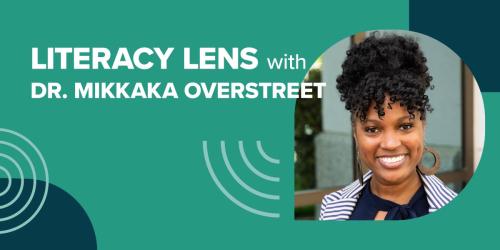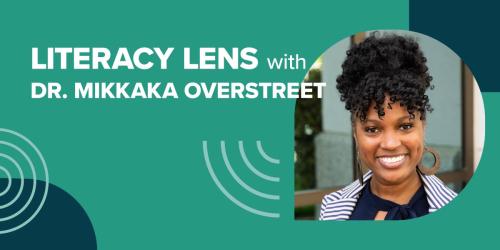Our Approach to Strategic Planning for School System Improvement

At Education Northwest, we believe that every student deserves access to a high-quality education. Getting there requires more than good intentions: It takes concerted effort and strategic planning.
Creating and implementing effective strategic plans is hard work, but acting without a plan can lead to scattered, competing, and ineffective initiatives. With the right approach, strategic planning can be a catalyst for transformation in education systems.
Over the years, our team has developed a strategic planning approach that helps education systems move from vision to reality. We have partnered with state agencies, school districts, and colleges across the nation to co-create strategic plans that are grounded in community voice, driven by data, aligned with real-world priorities, and sustainable. Our approach centers on opportunity and outcomes, community engagement, and actionable implementation.
This post explores how our approach to strategic planning, grounded in our Collaborative Analysis Process (CAP), has driven change in diverse educational settings, from K–12 districts to Tribal colleges.
The Pitfalls of Acting Without a Plan
We once partnered with a high school that had a history of chronic low performance to conduct a needs assessment and understand the root causes of their academic challenges. As part of the assessment, we asked the staff to list every new program or initiative they had tried over the last five years and to note whether each was successful or had failed. They listed over 300 initiatives—including professional learning communities, positive behavior interventions and supports, math and reading strategies, and specific student intervention programs. According to the staff, all 300 had failed!
Many of the programs were well known, high quality, and grounded in evidence. So what went wrong? Based on our research and experience, we can confidently say it was not the programs or initiatives that failed. The problem was a lack of strategic planning and support. Without a clear plan and an understanding of where a program or initiative fits in the plan, effective implementation is unlikely, if not impossible.
Our Strategic Planning Philosophy
We approach strategic planning as an opportunity to create a community plan for transformative, sustainable change in education systems. We recognize that transformation is a process, and our approach acknowledges that districts and schools are complex ecosystems made of multiple components. When these components are misaligned or implemented in isolation, they can lead to differences in opportunity, access, and outcomes.
Strategic planning provides a structured framework for aligning institutional goals with community needs. Our work begins with listening—engaging partners to define student success, articulate values, and identify priorities. This process ensures that plans are not only visionary but also implementable.
The Collaborative Analysis Process (CAP) is our signature method for building trust, fostering collaboration, and grounding decisions in data. Through CAP, we convene community voices to analyze local data, identify challenges and their root causes, and co-create solutions. Rather than relying solely on external experts, CAP empowers local partners to interpret data through the lens of their lived experiences. Our team of researchers and facilitators prepare the data and guide participants through the process, but the community drives the analysis and decision making.
Through CAP, we convene community voices to analyze local data, identify challenges and their root causes, and co-create solutions.
The CAP allows our partners to dig deeply into real-time data to discover what is and is not working for their community. With this understanding, they can develop precise, actionable strategic plans that are specific to their context and focus on results. This method helps districts move from insight to implementation, ensuring that the process leads to real change.
Strategic planning is only the beginning. We support implementation through coaching, professional development, and progress monitoring. Our goal is to ensure that the strategic plan leads to real change in classrooms, campuses, and communities. By centering opportunity and outcomes, engaging stakeholders, and using CAP, Education Northwest helps institutions move from vision to action, and from planning to impact.
Strategic Planning in Action
Below we share a few examples of strategic planning projects we have carried out with a range of partners, from state agencies to individual school districts. This work exemplifies how strategic planning can unify a community around shared values and drive meaningful change.
In partnership with the Oregon Department of Education, we developed a statewide plan to support multilingual learners. This effort included over 60 focus groups, a statewide survey, and deep collaboration with the state’s English Learner Advisory Group. We identified four priority areas: authentic community engagement, transformative educators, pathways to multilingualism, and systems improvement. The result? A plan that is actionable and aligns with existing initiatives and funding streams, ready to guide implementation across Oregon in 2025 and beyond.
Wenatchee Valley College, a university in Washington, partnered with us to develop a strategic plan. Together, we facilitated a planning committee representing students, staff members, and faculty members who helped identify four focus areas: students, staff/faculty/administrators, systems and culture, and community partnerships. From there, we conducted a needs assessment using early momentum metrics to identify strengths and areas for growth. This data-driven approach helped the college translate its plan into action, expand successful supports, and improve outcomes for all students.
In Evergreen Public Schools, we led a seven-month strategic planning process that built on a prior evaluation. The final plan reflected input from students, families, educators, and community members. Furthermore, it prioritized access and coherence and included clear mission and vision statements, strategic pillars, and measurable goals.
Our work with Blackfeet Community College—a Tribal community college located on the Blackfeet Indian Reservation in Browning, Montana—exemplifies our approach to strategic planning. Our team facilitated leadership meetings, conducted community outreach, and developed a plan that honors Tribal values and ways of knowing. The final plan includes clear goals, strategies, and an implementation timeline that was co-created with students, faculty members, and Tribal leaders.
What We Have Learned
Over the course of our strategic planning work, we have gained valuable insights into what makes these efforts successful. While each context is unique, certain themes emerge consistently. These lessons not only shape how we approach new projects but also offer practical guidance for any education leader looking to drive meaningful change. Across all our partnerships, a few key lessons stand out:
- Start with community voice. Authentic engagement from the beginning leads to plans that reflect real needs and build lasting buy-in.
- Use data to drive decisions. Intentional data analysis helps identify what is working—and where change is needed.
- Build capacity, not dependency. We aim to leave our partners stronger, with the tools and confidence to carry the work forward.
- Align for coherence. Strategic planning is most powerful when it connects to existing initiatives, funding, and goals.
Looking Ahead
As we continue to support implementation of Oregon’s multilingual learner plan and expand our strategic planning services, we remain committed to our core belief: that community-informed planning is essential to transforming education systems. If your school, district, or agency is ready to take the next step in strategic planning, we would love to connect.
Catherine Barbour is a senior director at Education Northwest specializing in school improvement and school leadership. For over 30 years, she has helped some of the lowest-performing districts and schools in the nation achieve improvement for all students.



